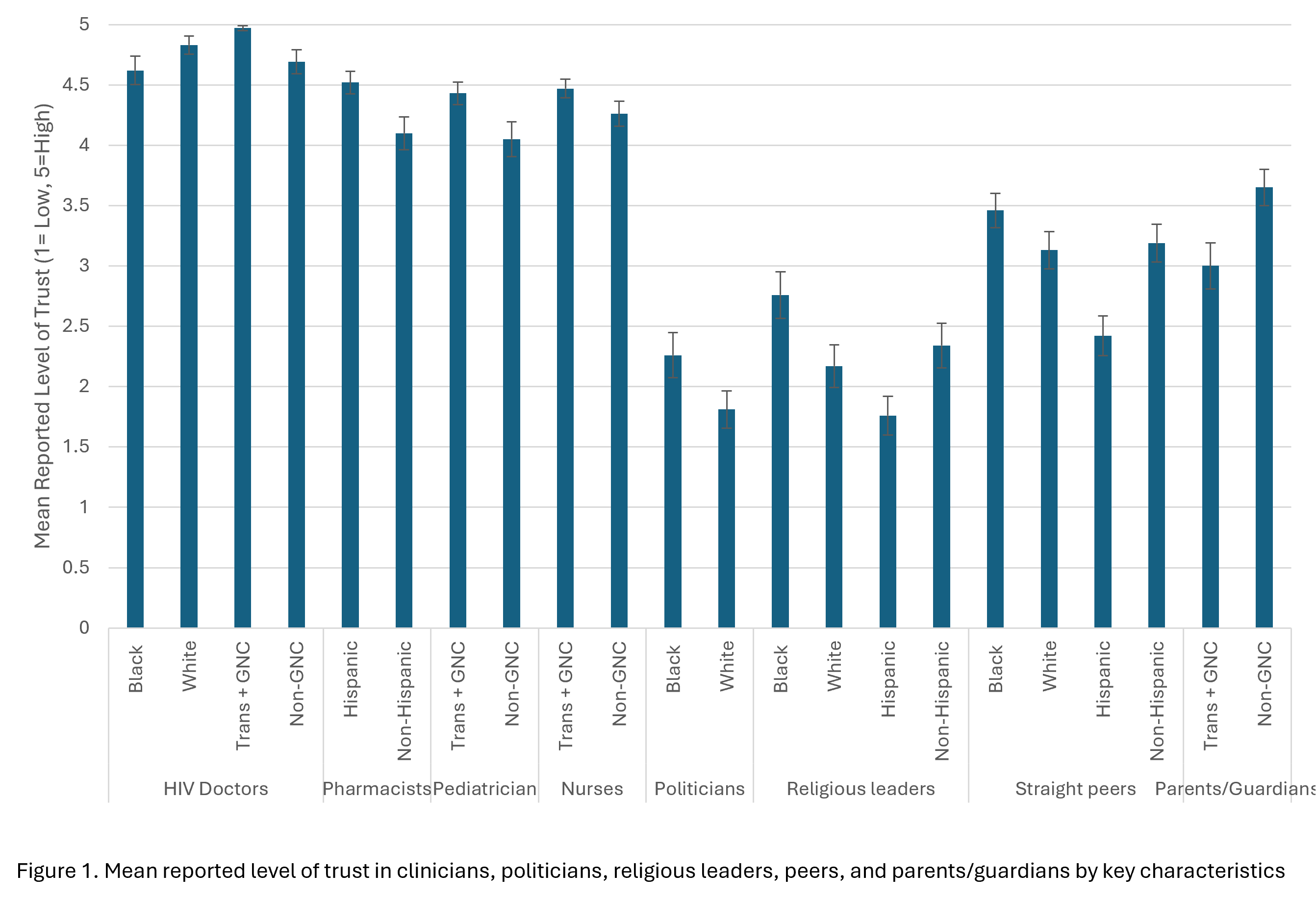Public Health & Prevention 4
Session: Public Health & Prevention 4
796 - Trusted Sources of Health Information among Sexual and Gender Minority Adolescents in Alabama
Monday, April 28, 2025
7:00am - 9:15am HST
Publication Number: 796.6544
Brittany A. Shelton, University of Tennessee Knoxville, Knoxville, TN, United States; Ibrahim Yigit, Florida State University, Tallahassee, FL, United States; Julia Brasileiro, Florida State University, Durham, NC, United States; Henna Budhwani, Florida State University, Vestavia Hills, AL, United States

Brittany A. Shelton, DrPH (she/her/hers)
Assistant Professor
University of Tennessee Knoxville
Knoxville, Tennessee, United States
Presenting Author(s)
Background:
Background: Sexual and gender minority (SGM) adolescents disproportionately engage in health-risk behaviors, potentially leading to an elevated risk of HIV acquisition. Preventive measures, including pre-exposure prophylaxis (PrEP), may reduce this risk. Understanding the extent to which SGM adolescents trust different helping professionals, parents, and peers may be critical for providing health education designed to reduce health risk behaviors and increase PrEP uptake.
Objective:
Objective: The goal of this study was to assess the level of trust in types of people among SGM adolescents in Alabama.
Design/Methods: Methods: Three hundred six SGM adolescents aged 14-17 were recruited online and from an in-person LGBTQ-supportive school and community center. Respondents described their level of trust related to obtaining health information from different types of people including healthcare providers, religious leaders, family members, and peers. Trust was reported on a 5-point scale ranging from 1 = “Very Low” to 5 = “Very High.” Responses were compared across race, ethnicity, and gender via analysis of variance.
Results:
Results: Reported trust in healthcare providers was high. Black SGM reported lower trust in HIV doctors than white SGM (Figure 1). Hispanic SGM reported higher trust in pharmacists than non-Hispanic SGM, and transgender and gender non-conforming (TGNC) adolescents reported higher trust in pediatricians, HIV doctors, and nurses than their male peers. Black SGM reported higher trust in politicians, religious leaders, and straight friends/peers than white SGM. In contrast, Hispanic SGM reported lower trust in both religious leaders and straight friends/peers than non-Hispanic SGM. TGNC adolescents reported significantly lower trust in their parents/guardians than their male peers.
Conclusion(s):
Conclusion: There was significant variation across racial, ethnic, and gender identity in the degree of trust in healthcare providers, politicians, religious leaders, family members, and straight friends/peers. These data may help inform design and delivery of public health interventions that aim to ultimately reduce HIV incidence among this priority population.
Figure 1. Mean Reported Levels of Trust by Key Characteristics
 This figure illustrates the different mean levels of reported trust in healthcare providers, parents/guardians, and straight friends/peers across individual race, ethnicity, and gender identity.
This figure illustrates the different mean levels of reported trust in healthcare providers, parents/guardians, and straight friends/peers across individual race, ethnicity, and gender identity. Figure 1. Mean Reported Levels of Trust by Key Characteristics
 This figure illustrates the different mean levels of reported trust in healthcare providers, parents/guardians, and straight friends/peers across individual race, ethnicity, and gender identity.
This figure illustrates the different mean levels of reported trust in healthcare providers, parents/guardians, and straight friends/peers across individual race, ethnicity, and gender identity. 
